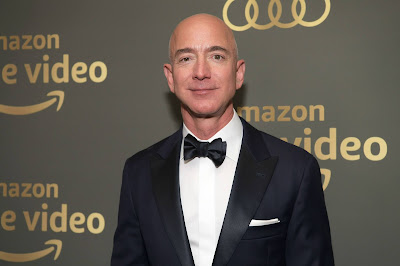Jeff Bezos
The CEOs will testify remotely at the hearing, which comes less than 100 days before the US election.
Zuckerberg is to say that the internet giant would not have succeeded without US laws fostering competition, but that the rules of the internet now need updating.
"Facebook is a proudly American company," Zuckerberg said in prepared remarks ahead of what will be a closely watched House Judiciary Committee hearing.
"Our story would not have been possible without US laws that encourage competition and innovation."
Bezos will paint online giant Amazon as an American "success" story, while accepting a need for scrutiny.
"I believe Amazon should be scrutinized," Bezos said in prepared remarks posted online ahead of the hearing.
Read it all here.









